|
|
EFMC AWARD CEREMONY AT THE EFMC INTERNATIONAL SYMPOSIUM ON CHEMICAL BIOLOGY (EFMC-ISCB 2023)
The EFMC-WuXi AppTec Award for Excellence in Chemical Biology was awarded for the 1st edition during the recent EFMC International Symposium on Chemical Biology (EFMC-ISCB 2023).
More than 285 attendees gathered to attend the 3-day symposium and hear the award lecturer, Prof. Gonçalo Bernardes (University of Cambridge, UK & IMM Lisboa, PT) deliver a talk on Translational Chemical Biology.
The award ceremony was hosted by Prof. Rui Moreira, EFMC President and Dr. Tao Guo, Senior Vice President and Head of WuXi Chemistry–RCS BD&IPM.
The second edition of the EFMC-WuXi AppTec Award for Excellence in Chemical Biology will be awarded at the occasion of the II EFMC International Symposium on Chemical Biology (EFMC-ISCB 2025), which will anew take place in Basel, Switzerland on January 29-31, 2025.
More information on The EFMC-WuXi AppTec Award for Excellence in Chemical Biology.
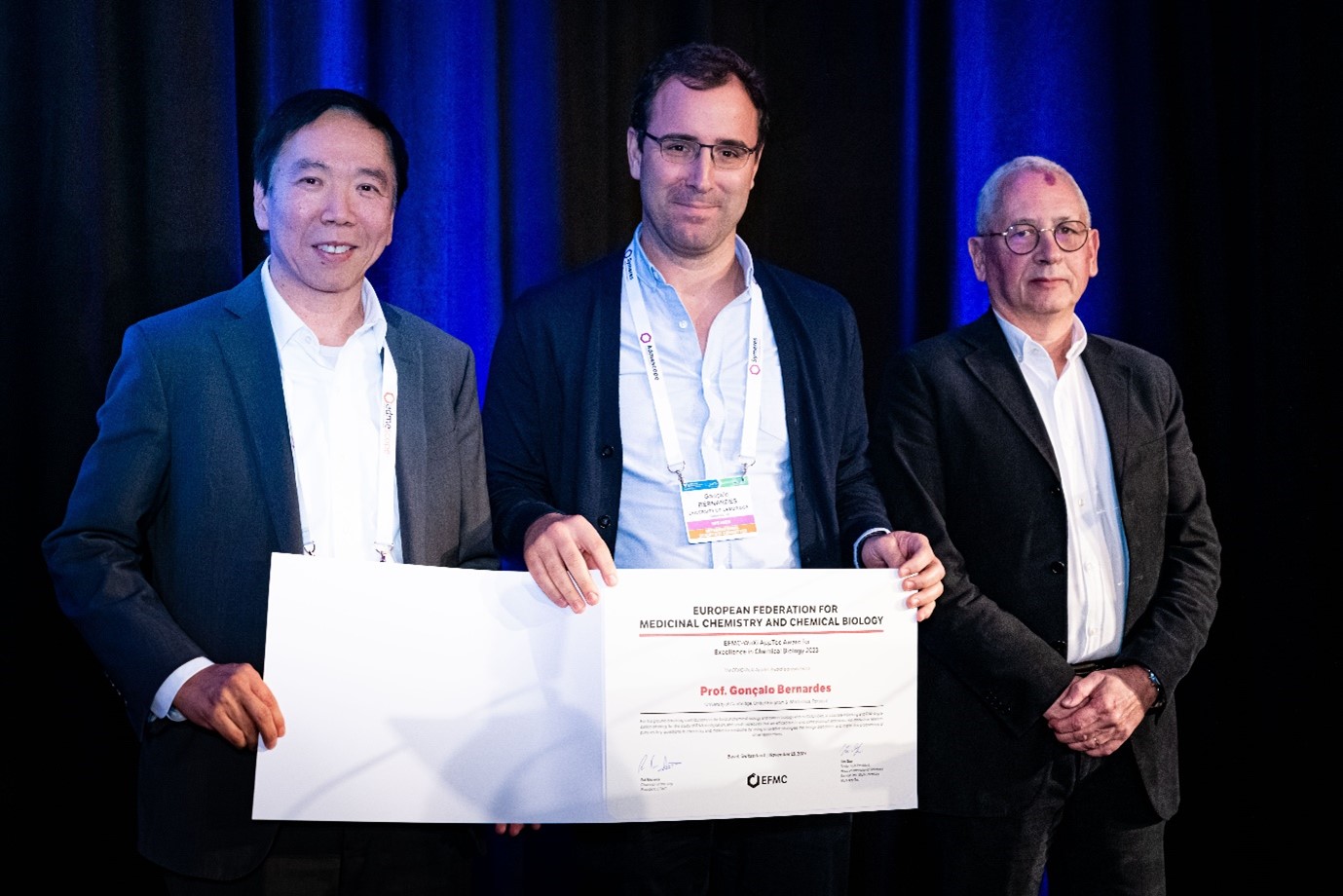
EFMC INTERNATIONAL SYMPOSIUM ON CHEMICAL BIOLOGY - SHORT REPORT
The first edition of the EFMC International Symposium on Chemical Biology (EFMC-ISCB 2023), which took place in Basel, Switzerland on November 16-18, 202, met its goal of taking over the series launched by the NCCR Chemical Biology and continuing a successful international event thanks to the joint efforts of the Swiss Chemical Society, Division for Medicinal Chemistry & Chemical Biology (DMCCB) and a dedicated International Organising Committee.
Over 285 international scientists gathered to listen to the cutting-edge science presented by the 26 invited speakers, 8 oral communications, and 100+ poster presenters over the three days of the conference.
The opening ceremony was led by the symposium chairs Prof. Maja Köhn (University of Freiburg, Germany) and Dr Yves P. Auberson (Novartis, Switzerland). The ceremony was followed by an inspiring lecture by Dr John Tallarico (Novartis, United States) on “Moving Undruggable Discoveries into the Drug Discovery Pipeline with Chemical Biology”.
Over the course of the event, participants attended a busy programme of nine sessions, among those two sessions by the EFMC Partners: the International Chemical Biology Society (ICBS) and the Division of Chemistry in Life Sciences (LS-EuChemS), and the EFMC-WuXi AppTec Award for Excellence in Chemical Biology session. Poster presenters shared their research during two dedicated poster sessions. Among the posters presented, two were awarded an EFMC-ICBS Best Poster Prize and four received a poster prize funded by Chemistry Europe. Four young scientists were also awarded a free registration to the event through the EFMC Grant programme.
Amongst many highlights of the programme were keynote lectures by Prof. Claudia Höbartner (University of Würzburg, Germany) and Prof. Thomas Carell (Ludwig-Maximilians-University, Germany). The closing lecture was delivered by Prof. Gonçalo Bernardes (University of Cambridge, UK & IMM Lisboa, PT), winner of the EFMC-WuXi AppTec Award for Excellence in Chemical Biology.
Several networking opportunities were offered: a welcome reception gathering all participants in an informal atmosphere and a conference dinner, hosted at the “Schützenhaus”, one of the region’s most tradition-rich restaurants where Basel hospitality and gastronomy were served to the guests.
We would like to thank all our committee members, speakers, sponsors, exhibitors, and of course participants for their support, and we look forward to warmly meeting you all again in Basel, Switzerland for the II EFMC International Symposium on Chemical Biology (EFMC-ISCB 2025), which will take place on January 29-31, 2025.
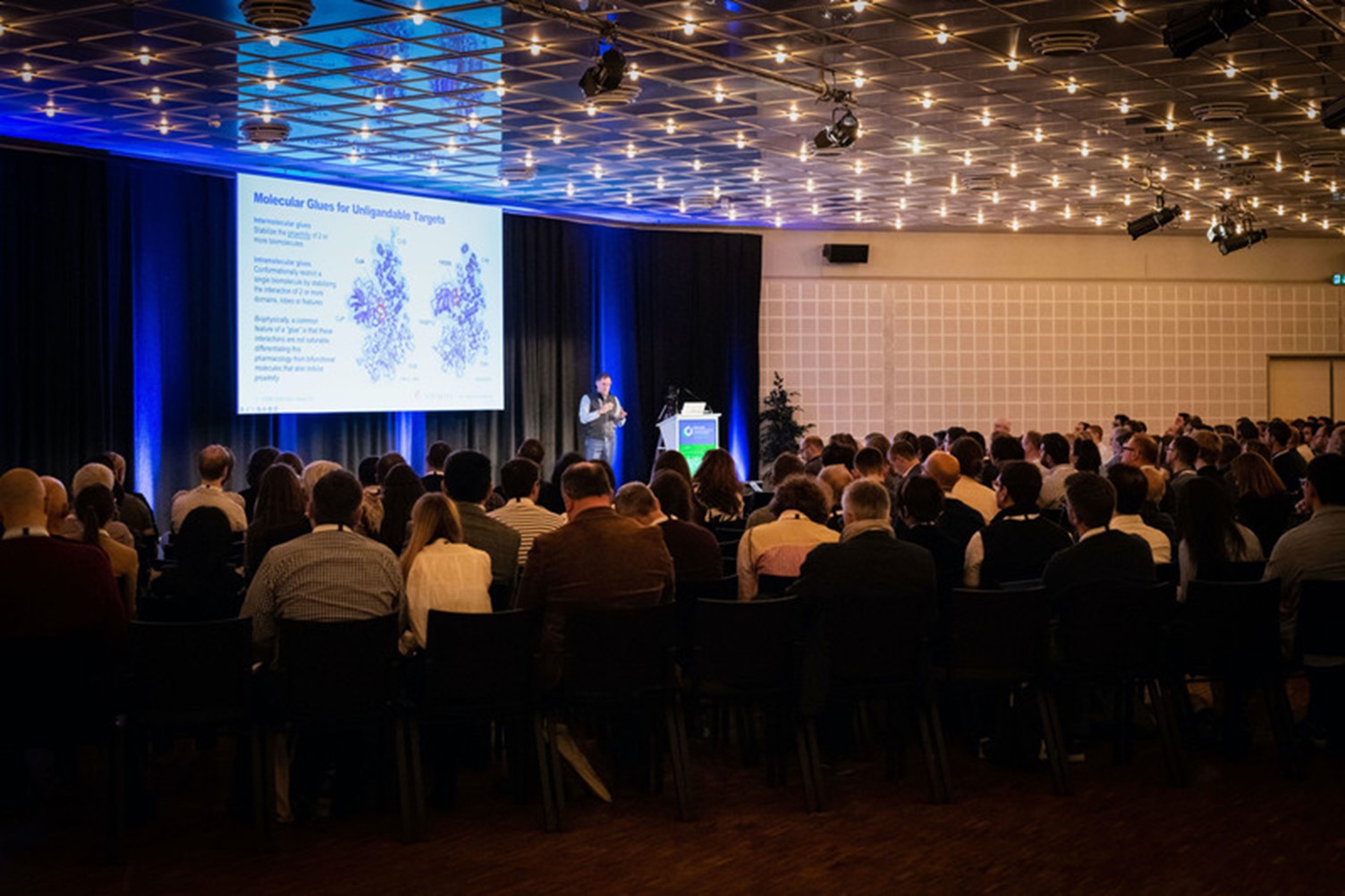
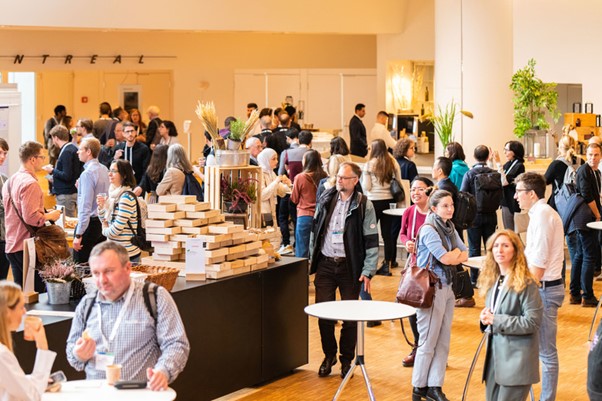
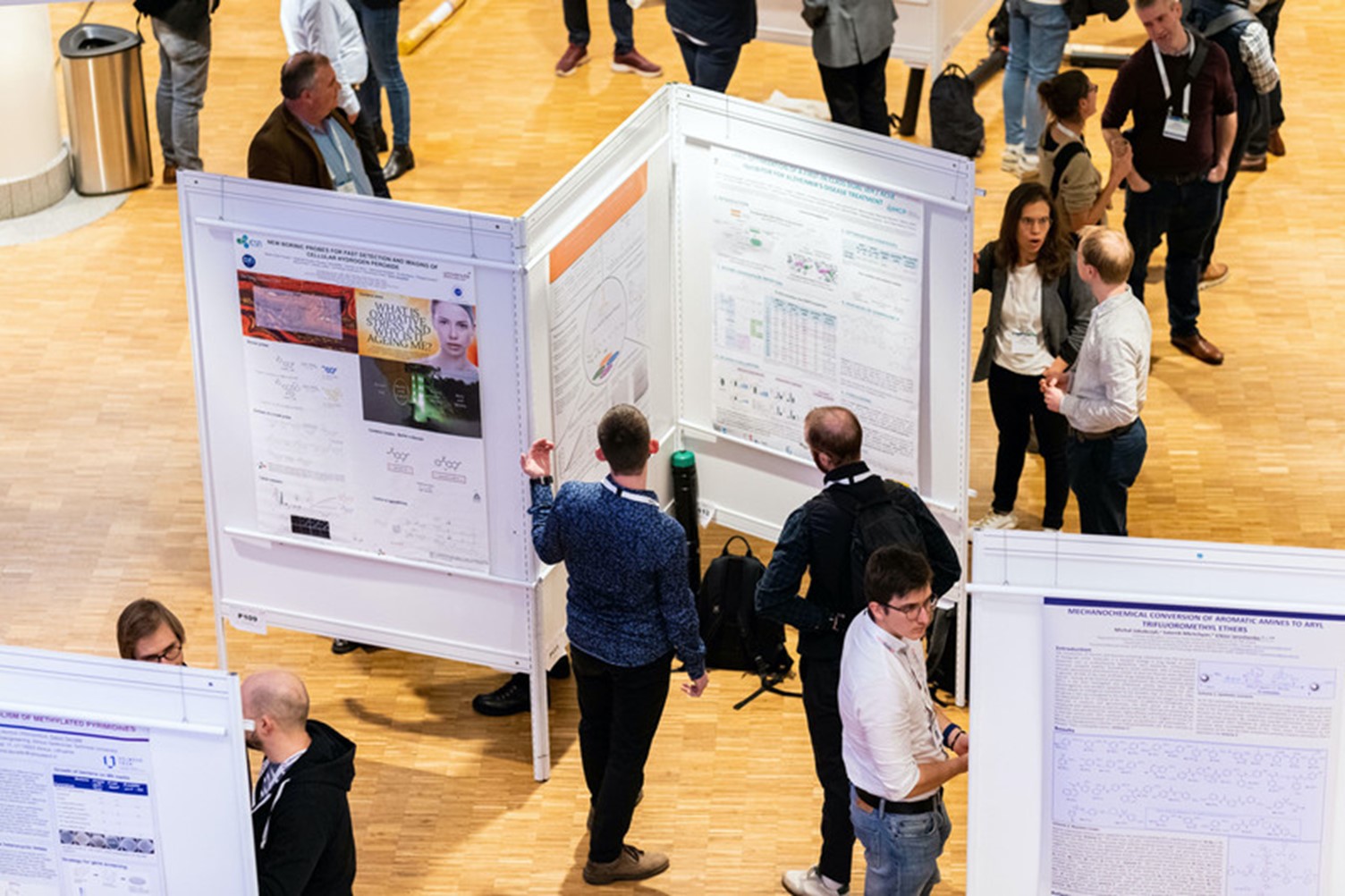
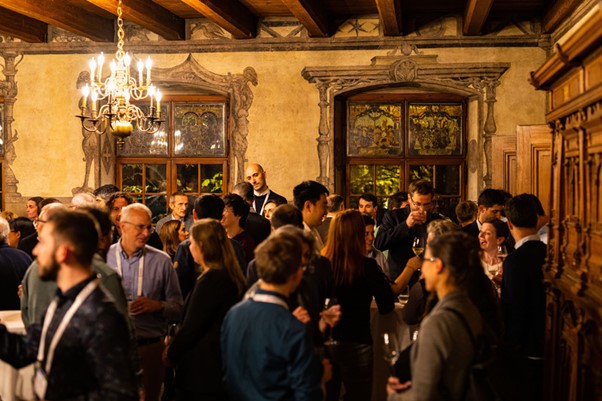
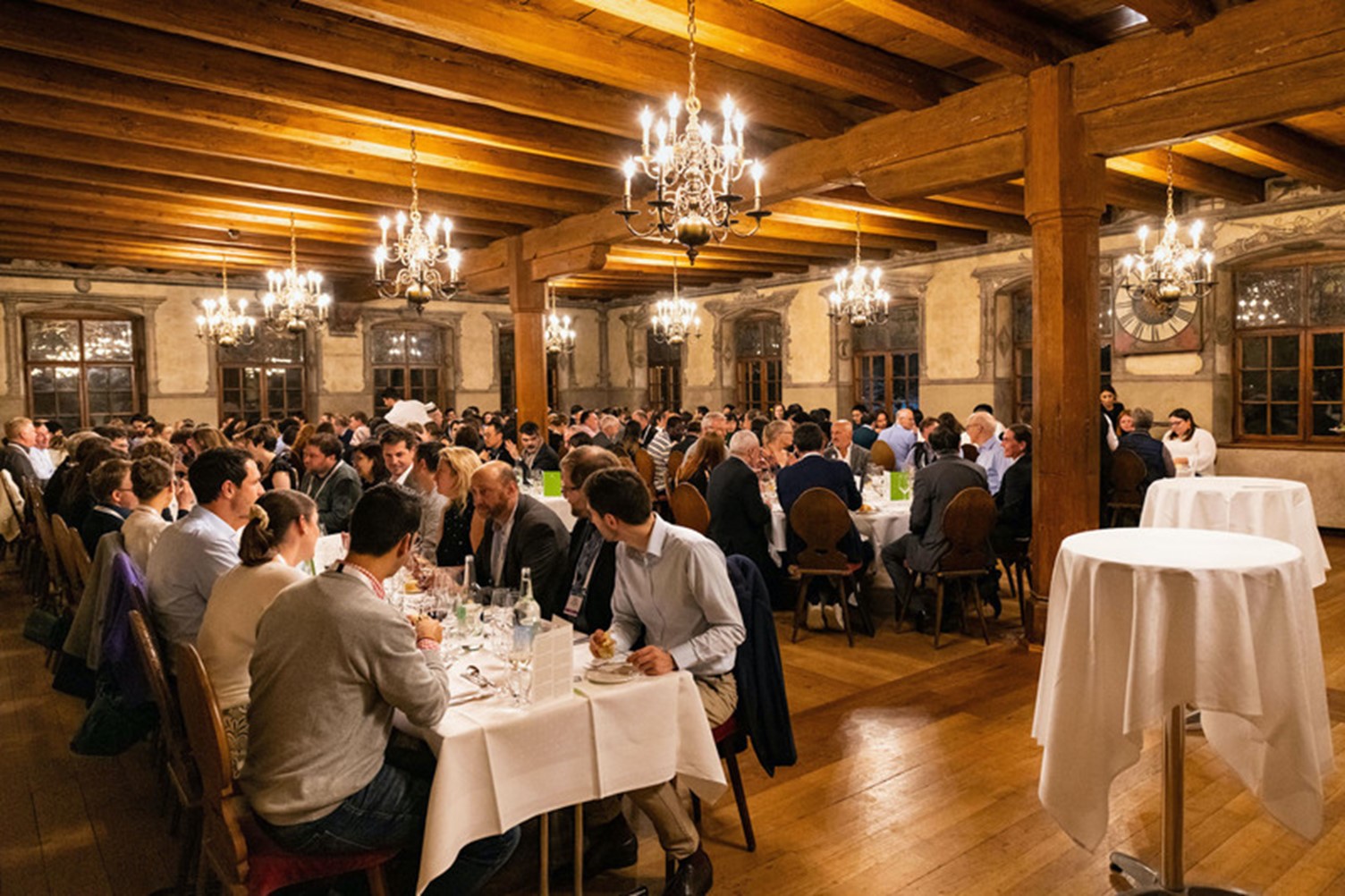
EFMC AWARDS 2024 – CALL FOR NOMINATIONS
To acknowledge outstanding achievements in the field of Medicinal Chemistry and Chemical Biology, EFMC will confer three awards in 2024. The Awards will be presented at the XXVIII EFMC International Symposium on Medicinal Chemistry (EFMC-ISMC 2024) to be held in Rome, Italy on September 1-5, 2024.
All three awards consist of a diploma, 7.500€ and an invitation to give a headline presentation at EFMC-ISMC 2024.
Nominations for these Awards should consist of a nomination letter and a brief CV including a list of selected publications and two supporting letters. Self-nominations are also accepted. The nominations should be submitted to Dr Luc Van Hijfte, President Elect of the EFMC, via the following link.
Deadline for submission: January 31, 2024
The Award will be given for outstanding achievements in scientific research including contributions to the development of international organisational structures in Medicinal Chemistry and Chemical Biology.
To acknowledge and recognise outstanding research in the field of Medicinal Chemistry in its broadest sense by a young scientist. This Award has been established with the support of UCB Pharma.
To encourage innovation and investigation in technological development related to drug discovery, this Award, established with the support of the Prous Institute, will be given for the discovery, evaluation, or use of new technologies.
EFMC PRIZES 2024 – CALL FOR NOMINATIONS
To acknowledge and recognise outstanding researchers (≤ 12 years post PhD) working in European industry and academia, the EFMC established the "EFMC Prize for a Young Medicinal Chemist or Chemical Biologist in Industry" and the "EFMC Prize for a Young Medicinal Chemist or Chemical Biologist in Academia".
These two prizes are given annually and consist of a diploma, 1.000€ and an invitation for a short presentation at the XXVIII EFMC International Symposium on Medicinal Chemistry (EFMC-ISMC 2024). Two additional nominees will also be identified and acknowledged as most meritorious runners-up.
Deadline for nominations is January 31, 2024.
EFMC Prize for a Young Medicinal Chemist or Chemical Biologist in Industry
Nominations should be written by the candidate’s supervisor and consist of:
- a letter by the supervisor.
- a brief CV of the candidate.
- an abstract of the potential oral presentation.
EFMC Prize for a Young Medicinal Chemist or Chemical Biologist in Academia
Applications should consist of:
- a one-page letter by the candidate, including a short rationale for their application
- one page with the five key publications
- a brief CV of the candidate
- an abstract of the potential oral presentation.
EFMC-YSN PHD PRIZE 2024, sponsored by Selvita – CALL FOR NOMINATIONS
In their aim to recognise excellence and accomplishment in postgraduate research, the EFMC-Young Scientist Network is proud to announce the 2024 edition of the "EFMC-YSN PhD Prize, sponsored by Selvita", to be awarded to a European PhD student (or up to two years post PhD) in medicinal chemistry or chemical biology.
The prize, now kindly sponsored by Selvita, will consist of a diploma, 1.000€ and an invitation to deliver an oral communication at the EFMC Young Medicinal Chemists' Symposium (EFMC-YMCS). The 2024 winner will also receive free registration and a 500€ travel grant to attend both the XXVIII EFMC International Symposium on Medicinal Chemistry (EFMC-ISMC 2024) and the 11th EFMC Young Medicinal Chemists' Symposium (EFMC-YMCS 2024) which will take place in Rome, Italy on September 1-5 & September 5-6, 2024.
An additional nominee will also be identified and acknowledged as most meritorious runner-up and will receive a 500€ prize.
More information on EFMC-YSN PhD Prize, sponsored by Selvita.
LITERATURE SPOTLIGHT
The “literature spotlight” section of the newsletter will bring you a summary of recently published research in a concise and accessible way. Multiple thematics from different journals will be highlighted thanks to the valuable contribution of members of the EFMC working groups.
This contribution focuses on the recently published article “Generation of Molecular Counterfactuals for Explainable Machine Learning Based on Core-Substituent Recombination” by Lamens, Alec, Bajorath, Juergen, ChemMedChem 2023, e202300586.
Counterfactuals (CFs) are investigated across various scientific domains to elucidate the decision-making processes of machine learning models. The exploration of CFs is at an early developmental phase in the field of medicinal chemistry, t. This study introduces a new model-agnostic concept for generating CFs that have been specifically tailored for medicinal chemistry. The research team endeavored to develop a method that yields CFs that serve as structural analogues of compounds sharing the same core (or very similar cores). In this article, CFs were produced through the recombination of cores extracted from compound classes undergoing predictions and frequent substituents collected from other bioactive compounds. Consequently, CF candidates serve as readily interpretable structural analogues of test compounds in chemical terms. The inclusion of this knowledge-based componentrenders the recombination procedure computationally inexpensive. As a result, there is a notable reduction in the necessity to predict hypothetical compounds for individual testing. This methodology supports counterfactual selection by assessing changes in molecular weight (MW) relative to shared cores and alterations in prediction probabilities. It represents a valuable contribution to the field, providing a systematic and efficient means of generating counterfactuals with diverse applications.
Read the article. EFMC GRANTS 2024 – APPLICATIONS ARE OPEN
EFMC is funding grants for EFMC organised events with the aim to support the participation of young academic scientists.
Upon application, a limited number of grants will be covered by EFMC, corresponding to:
- The full registration fees for EFMC-ISMC/EFMC-YMCS, EFMC-ASMC, EFMC-ISCB and ACSMEDI-EFMC Medicinal Chemistry Frontiers
- Up to 50% of the registration fees for the EFMC Short Courses
The following Grant applications for 2024 events are open
- EFMC-ACSMEDI Medicinal Chemistry Frontiers 2024
Utrecht, The Netherlands | April 8-11, 2024
www.medchemfrontiers.org
Deadline for application: January 19, 2024
- 18th EFMC Short Course on Medicinal Chemistry: Transformative Approaches in Medicinal Chemistry, with Applications in Cancer Research
Oegsgeest, The Netherlands | April 21-24, 2024
www.efmcshortcourses.org
Deadline for application: January 26, 2024
- XXVIII EFMC International Symposium on Medicinal Chemistry (EFMC-ISMC 2024)
Rome, Italy | September 1-5, 2024
www.efmc-ismc.org
Deadline for application: March 7, 2024
- 11th EFMC Young Medicinal Chemists' Symposium (EFMC-YMCS 2024)
Rome, Italy | September 5-6, 2024
www.efmc-ymcs.org
Combined with the grant application of EFMC-ISMC 2024 (Participation to both events is mandatory)
Once registered in the grant system, you will receive a confirmation email with your data to access your secured page, and upload the following:
- cover letter
- support letter by the supervisor
- CV
- plist
- abstract of the Oral Communication/Poster Presentation (not required for the EFMC Short Course)
Please be informed that following EFMC regulations, only the members of an EFMC National Adhering Organisation will be allowed to apply for the EFMC grants.
EFMC ADVENT CALENDAR – CELEBRATE THE HOLIDAY SPIRIT WITH US!
Our Social Media Advent Calendar started already on X and Instagram but we welcome submissions until the last day. Enter the competition in sharing your most festive pictures and win a 50€ prize and an EFMC GoodieBox.
How to participate?
- Share your picture by PM via X, or
- Tag us from a public account on X (@EuroMedChem) or Instagram (@euromedchem), or
- Share your picture and details via email to communication@efmc.info
EFMC MENTOR ROB YOUNG RECOMMENDS THIS COMMENTARY BY DEAN BROWN
I was most impressed by this timely and very perceptive article on the current landscape, practices, and opportunities in Medicinal Chemistry. Since taking early retirement after a near 30-year career with Wellcome, GlaxoWellcome and GSK, now a rare occurrence in ostensibly one company, I have seen the landscape up close through my consulting with companies of all sizes.
This very much reflects Dean's observations. Anyone considering a career in drug discovery should read this and consider the implications. It is often said that becoming a Medicinal Chemist is a 20-year apprenticeship after a PhD/Post Doc, so the need for training and mentoring in this is vital.
AI companies claim to try to digitise the experienced MedChem minds but I can't see this happening just yet. The discipline is not about rules, used as guidance by the wise, but understanding the subtleties and adapting for each target and delivery mode! Small or not so small molecule drug discovery has a bright future and a continuing vital role in human health and well-being, just the economics and practices have changed.
But knowledge, experience, and the ability to think will never change!
Read the article by Dean G. Brown on Adapting to the Changing Landscape of Biotech-Driven Drug Discovery.
Written by Rob Young, Blue Burgundy, United Kingdom
MEET REBECCA BULLER-BLOMBERG, ZURICH UNIVERSITY OF APPLIED SCIENCES, SWITZERLAND
In this edition, our MedChemBioConversations is with Rebecca Buller-Blomberg from the Zurich University of Applied Sciences, Switzerland.
Get to know her better by reading the interview below:
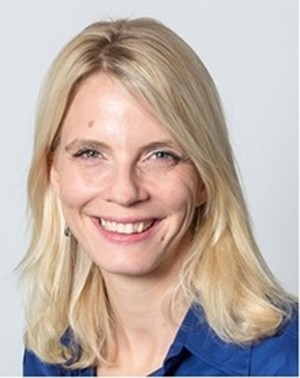
How did you get interested in Chemical Biology?
Early on in my chemistry studies I became intrigued by the synthetic potential of enzymes and our budding capability to engineer them into even more useful catalysts.
Where and when did you obtain your PhD diploma?
I obtained my PhD diploma from ETH Zurich in 2011 with Professor Donald Hilvert. I worked on the “Directed Evolution of Artificial Enzymes”: Using an in silico designed enzyme as a starting point, we evolved the new-to-nature biocatalyst to exhibit “natural” enzyme-like activity.
After my PhD, I started to work in industry (Firmenich SA) and led a laboratory for biocatalytic transformations to obtain fragrance and flavour compounds.
Where are you currently working and what is your current position?
I’m a Professor at the Zurich University of Applied Sciences and lead the Competence Center for Biocatalysis (www.zhaw.ch/ccbio) where we work on engineering enzymes for challenging chemistries (e.g., stereocontrolled halogenation) and developing new enzyme engineering techniques.
How would you explain what your research area is to non-scientists?
Enzymes are Nature’s catalysts and drive chemical processes in all living things. Enzymes possess many desirable characteristics: they are highly specific, work in water, are biodegradable and can be produced sustainably.
Nature has optimized enzymes for their tasks over many billions of years and found solutions to highly complex problems. Our goal is to tailor the biocatalysts to address challenges in the chemical industry, e.g., the sustainable production of drugs, flavours, or agrochemicals.
In a way, the development of a biocatalytic reaction can be compared to top-level sports. In a first step, one scouts for talent – in our lab that means to identify wildtype enzymes that are in principle capable of catalysing the desired reaction. Next comes training: In our case, this corresponds to the directed evolution of enzymes through recurrent cycles of diversification and selection in the laboratory. Finally, we develop a “game strategy” for the tailored biocatalysts by optimizing reaction parameters such as temperature, pH, substrate, and solvent concentrations.
What do you like best about your work?
The freedom to constantly learn and discover new things leading to wonderful “Heureka” moments.
How many PhD students and postdocs do you currently supervise?
Currently, we are a team of 6 PhD students & 10 postdocs/ research associates; We are always happy to welcome new enzyme enthusiasts to our team. Currently, we are looking for a bioinformatician and a biocatalysis postdoc.
How would you describe yourself as a supervisor?
Curious, excitable, willing to listen and learn.
What do you consider your greatest achievement in your scientific career?
I am proud of developing enzymes which find meaningful practical applications.
Which of your papers are you most proud of and why?
J. Büchler, S. Honda Malca, D. Patsch, M. Voss, N. Turner, U. Bornscheuer, O. Alleman, C. Le Chapelain, A. Lumbroso, O. Loiseleur and R. Buller, Algorithm-aided engineering of aliphatic halogenase WelO5* for the asymmetric late-stage functionalization of soraphens, Nat Commun 2022, 13, 371.
The paper highlights how elegantly enzymes can do very complex chemistry.
M. Eichenberger*, S. Hüppi*, D. Patsch*, N. Aeberli, R. Berweger, S. Dossenbach, E. Eichhorn, F. Flachsmann, L. Hortencio, F. Voirol, S. Vollenweider, U. Bornscheuer and R. Buller, Asymmetric Cation-Olefin Monocyclization by Engineered Squalene-Hopene Cyclases, Angew Chem Int Ed2021, 60, 26080 – 26086.
Leveraging our understanding of the enzymatic mechanism, we employed substrate engineering to access the desired product enantiomer.
What are the features of a successful PhD student or postdoc?
Curiosity, drive, resilience, and passion for science.
What advice would you give to someone who wants to know more about your field?
Attending conferences and getting in touch with experts in the field. I feel that interdisciplinary discussions are the most rewarding!
What is the most embarrassing thing you have done in the lab while doing experiments, e.g. explosions?
The most embarrassing experience was during my diploma thesis: When plating bacterial cells next to a Bunsen burner I set a bit of my hair on fire. I looked funny for the rest of the semester.
What would you expect to be the next major breakthrough in chemical biology?
- Enzymatic synthesis of customized DNA.
- Leveraging AI to better understand the sequence-function relationship in enzymes.
REPORT OF THE 1ST INTERNATIONAL MEETING “MOLECULES4LIVE”
The 1st International Meeting Molecules4Live, with over 130 participants, took place at the University of Trás-os-Montes e Alto Douro from 20th to 22nd September.
This event focused on the advancements achieved with new molecules or molecular configurations and addressed four main topics: Therapeutic Applications, Drug Delivery, Sensors and Diagnosis, and Healthy Food. The congress featured ten high-quality lectures, 35 oral and 50 poster presentations that stimulated critical thinking and fostered fruitful discussions among participants.
In addition to this scientific program, this event also provided some informal networking moments, including a Porto wine reception and a visit to a Douro wine farm, followed by the dinner congress.
The 1st International Meeting, Molecules4Life (1M4Life), occurred between the 20-22nd of September 2023 at the School of Life and Environmental Sciences of the University of Trás-os-Montes and Alto Douro. The firsts congress with the Molecules4Life seal was a joint organization of the Centro de Química-Vila Real (CQVR) and the Portuguese Chemical Society. This first edition was dedicated to the interaction between new molecules and Health Sciences, and important advances achieved with new molecules or new molecular configurations were addressed in 4 major topics: Healthy Food (HF), Drug Delivery (DD), Therapeutic Applications (TA) and Sensing and Diagnosis (SD).
The congress featured ten plenary conferences, seven invited communications, 28 oral presentations, 50 posters and around 140 participants from various parts of the country (including the Azores and Madeira) and also from the United States, France, Germany, Ireland, Scotland, Spain, South Korea, Malaysia, Turkey, England, Poland, and Croatia. Most participants were university professors or postdoctoral researchers. Several doctoral and master's students also participated, especially from UTAD.
The plenary conferences addressed the most recent advances, challenges, and trends in the different themes of the congress. They were given by:
- Prof. Richard Hartley (Univ. of Glasgow) – "Small molecules to interrogate and intervene in cellular redox."
- Prof. Tiago Outeiro (Univ. of Gottingen) – "Unraveling the molecular mechanisms of Parkinson's disease and related synucleinopathies"
- Prof. Matilde Marques (IST) – "Tackling health challenges with chemical tools: incursions into drug design and drug toxicity"
- Prof. Belen Vaz (Univ. of Vigo) – "Synthesis of indolebenzoazepinone scaffolds as active epigenetic modulators: challenges and opportunities"
- Dr Bruno Silva (Empa) – "Advances and challenges in nonviral gene therapeutics: a physical chemist's perspective"
- Prof. Maria Blanco-Prieto (Univ. of Navarra) – "Nanomedicine for the treatment of pediatric cancer"
- Dr. Rui Campos (IINL) – "Genosensors: from small molecules to nucleic acids"
- Prof. Maria Gamella-Carballo (UCM) – "Disposable affinity electrochemical biosensing platforms: towards reliable tools for food safety and personalized nutrition"
- Prof. Pierre-Louis Teissedre (Univ. of Bordeaux) – "Health potential of grape and wine phenolic compounds"
- Prof. Justin Siegel (UC Davis) – "Protein design and discovery to build the future of our food system".
At 1M4Life, the best oral and poster communications in each area were awarded, with the jury made up of several members of the scientific committee. The winners in the best Oral Communication category were João Siopa (UTAD) in HF, Daniela Malafaia (UA) in TA, Ivo Martins (UMA) in DD and Isilda Amorim (UM) in SD. The prizes for best posters were awarded to Mónica Silva (UTAD) in HF, Beatriz Morais (IST) in TA, Marina Amorim (UP) in DD and Joana Martins (UC) in SD.
1M4Life was a success, with excellent plenary communications that provided valuable insights, stimulated critical thinking, and promoted productive dialogues among participants. In addition to the plenary sessions, the event offered networking opportunities that further enriched the relationship between researchers.
The Molecules4Life Organizing Committee would like to thank all participants for the high quality of the work presented and all sponsors for supporting this event. REPORT OF THE XXVIII NATIONAL MEETING ON MEDICINAL CHEMISTRY (NMMC 2023)
The XXVIII National meeting on Medicinal Chemistry (NMMC 2023), organized by the Division of Medicinal Chemistry of Società Chimica Italiana, was held in Chieti (Italy) from 17-20th september 2023.
The scientific and local organizing committee were lead by Prof. Maria Laura Bolognesi (University of Bologna) and by Prof. Adriano Mollica (University of Chieti-Pescara). The meeting had 270 participants, with 5 plenary lectures carried out by top international speakers, 10 keynote lectures, 36 oral communications, 18 flash oral communications, 104 posters and 2 best poster awards. Over 20 sponsors participated to the meeting, and we were honored by the presence of the the President of the Socità Chimica Italiana, Prof. G. Farinola. Dr Dario Neri received the prestigious Pratesi Medal.
The main themes discussed in the congress embraced aspects of drug discovery and pharmaceutical analysis, with a focus on sustainable medicinal chemistry and peptide chemistry.
NEWS FROM THE BIOLOGICAL AND MEDICINAL CHEMISTRY SECTOR (BMCS) OF THE ROYAL SOCIETY OF CHEMISTRY (RSC)
The BMCS is pleased to announce upcoming events.
9th RSC-BMCS Fragment-based Drug Discovery Meeting
3rd – 5th March, 2024, Hinxton Hall Conference Centre, welcome Genome Campus, Cambridge, UK
Abstract submissions and registration is now open!
Website: https://www.rscbmcs.org/events/fragments24/
Synopsis: The aim of the 9th RSC-BMCS Fragment-based Drug Discovery meeting will be to continue the focus on case studies in Fragment-based Drug Discovery that have delivered compounds to late stage medicinal chemistry, preclinical or clinical programmes. The Fragment series was started in 2007 and continues with this theme in having over three-quarters of the presentations focused on case studies. This will be complemented by technology progress in high concentration, NMR, SPR and X-ray screening.
BMCS Conformational Design in Drug Discovery
7th March, 2024, GSK, Stevenage, UK
Registration is now open! Abstract submissions are now open!
Website: https://www.rscbmcs.org/events/conformationaldesign24/
Synopsis : Conformational Design has played a key role in the medicinal chemistry of small molecule clinical candidates over the last 20 years. A key learning from multiple projects supported by experimental free ligand NMR solution conformations and protein-ligand X-ray structures is that the bioactive conformation of potent ligands is highly populated in solution. Ligand rigidification has been particularly successful in the design of selective and potent protein-protein interaction inhibitors and is becoming an increasingly important approach for PROTACs, molecular glues and other new modalities. This new RSC-BMCS event aims at building a community that shares conformational design strategies, technologies, and successful case studies. It will complement other rational drug design events and promote more successful research into future medicines.
The BMCS Mastering MedChem VIII: 8th RSC-BMCS Symposium on Mastering Medicinal Chemistry
15th March, 2024, Burlington House, London, UK
Registration is now open!
Website: https://www.rscbmcs.org/events/mastermedchem24/
Synopsis: Mastering Medicinal Chemistry VIII is the latest in an ongoing series of conferences intended to provide expert advice and guidance to new practitioners in the field of drug discovery. It has been said that “there are two types of drug discovery programmes: those that hit serious problems and those that are going to hit serious problems”. Anticipating and preparing for such problems thus accelerates the delivery of new medicines: this event will feature presentations from experienced ‘drug-hunters’ in both industry and academia, who will talk about the challenges faced in modern drug discovery, and will share best practice common to all successful medicinal chemists.
BMCS 35th Medicinal Chemistry in Eastern England
25th April 2024, Fielder Centre, Hatfield, UK
RSC BMCS
Registration will be open soon!
Website: https://www.rscbmcs.org/events/mcee35/
Synopsis: Known colloquially as the “Hatfield MedChem” meeting, this is a highly successful, long-standing, one-day meeting that runs annually. The scientific program will comprise presentations showcasing medicinal chemistry case studies from tools to candidates, across a range of modalities, therapeutic areas and target classes, as well as covering more general topics at the forefront of drug discovery. The meeting aims to be informal and interactive, and is ideal for all those working in medicinal chemistry and drug discovery more widely.
Hot Topics: Covalent Binders
16th May 2024, Virtual
Registration will be open soon!
Website: https://www.rscbmcs.org/events/hottopicsci24/
4th Synthesis in Drug Discovery and Development
4th – 5th June, Virtual
Registration will be open soon! Keep checking website for updates!
Website: https://www.rscbmcs.org/events/sddd24/
Synopsis: Synthesis is at the heart of drug discovery and development. The industry has increasingly demanded higher quality clinical candidates and has sought to exploit less druggable biological targets. Densely functionalised small molecules with a high degree of synthetic complexity are often the result of these demands. Successful programmes therefore require the application of innovative synthesis in all stages of discovery and development. The medicinal chemist’s toolbox is also enhanced by the introduction of novel bioisosteres, often made available only through the application of new synthetic methods. This symposium aims to celebrate the crucial role of synthesis in the success of drug discovery and development.
RSC-CICAG/RSC-BMCS 7th Artificial intelligence in Chemistry
16th – 17th September, Churchill College, Cambridge
Date for your Diary!
Website: https://www.rscbmcs.org/events/aichem7/
Synopsis: Artificial Intelligence is experiencing a renaissance in the development of new methods and practical applications to ongoing challenges in Chemistry. Following the successes of five annual “Artificial Intelligence in Chemistry” meetings starting in 2018, we are pleased to announce that the Biological & Medicinal Chemistry Sector (BMCS) and Chemical Information & Computer Applications Group (CICAG) of the Royal Society of Chemistry are once again organising a conference to present the current advances in AI and machine learning in Chemistry. The meeting will be held over two days and combine aspects of artificial intelligence and deep machine learning methods to applications in chemistry. The programme will include a mixture of keynote talks, panel discussion, oral presentations, flash presentations, posters and opportunities for open debate, networking and discussion.
This year meeting has changed format to two and half days and will include workshop on first day, please keep checking website for updates.
9th RSC/SCI GPCRs in Medicinal Chemistry
2nd – 4th October 2024, Evotec Campus Levi-Montalchini, Verona, Italy
Registration will be open soon! Keep checking website for updates!
Website: https://www.rscbmcs.org/events/gpcrs24/
Synopsis: The key role of G protein-coupled receptors (GPCRs) in human disease underpins their importance to modern medicine. We were pleased to hold this 9th meeting in the series on GPCR drug discovery, which combined cutting edge medicinal chemistry with innovative structural biology and novel drug design approaches. THIS NEWSLETTER IS KINDLY SPONSORED BY
|
|
|
|
|
|
ISSUE SPONSORED BY

As a global company with operations across Asia, Europe, and North America, WuXi AppTec provides a broad portfolio of R&D and manufacturing services that enable the pharmaceutical and healthcare industry around the world to advance discoveries and deliver groundbreaking treatments to patients.
Read more
EFMC ORGANISED EVENTS
February 15, 2024
Virtual Event
2nd EFMC² Tandem Talks
April 8-11, 2024
Utrecht, The Netherlands
EFMC-ACSMEDI Medicinal Chemistry Frontiers 2024
April 21-24, 2024
Oegstgeest, The Netherlands
18th EFMC Short Course on Medicinal Chemistry
September 1-5, 2024
Rome, Italy
XXVIII EFMC International Symposium on Medicinal Chemistry (EFMC-ISMC 2024)
September 5-6, 2024
Rome, Italy
11th EFMC Young Medicinal Chemists' Symposium (EFMC-YMCS 2024)
EFMC SPONSORED EVENTS
January 9, 2024
Oxford, United Kingdom
RSC-BMCS Postgraduate Symposium XVII
January 24-26, 2024
Orsay, France
SCF Chemical Biology Symposium 2024 – Chemistry meets Biology
January 28-February 1, 2024
St. Anton, Austria
4th Alpine Winter Conference on Medicinal and Synthetic Chemistry
JOB PORTAL
PostDoc in Drug design and pharmacology, Medical University of Vienna, AUSTRIA
Read more
Internship in Global Discovery Chemistry, Novartis, SWITZERLAND
Read more
Assistant Professor (Tenure Track), National University of SIngapore, SINGAPORE
Read more
Postdoctoral Researcher, ETH Zurich, SWITZERLAND
Read more
Bioanalytical DMPK Scientists/Senior Scientists, Sygnature Discovery, UNITED KINGDOM
Read more
Associate Principal/Principal Scientist - DMPK, Sygnature Discovery, UNITED KINGDOM
Read more
Affinity Selection Mass Spectrometry Scientist/Lead Scientist, Sygnature Discovery, UNITED KINGDOM
Read more
|
|
